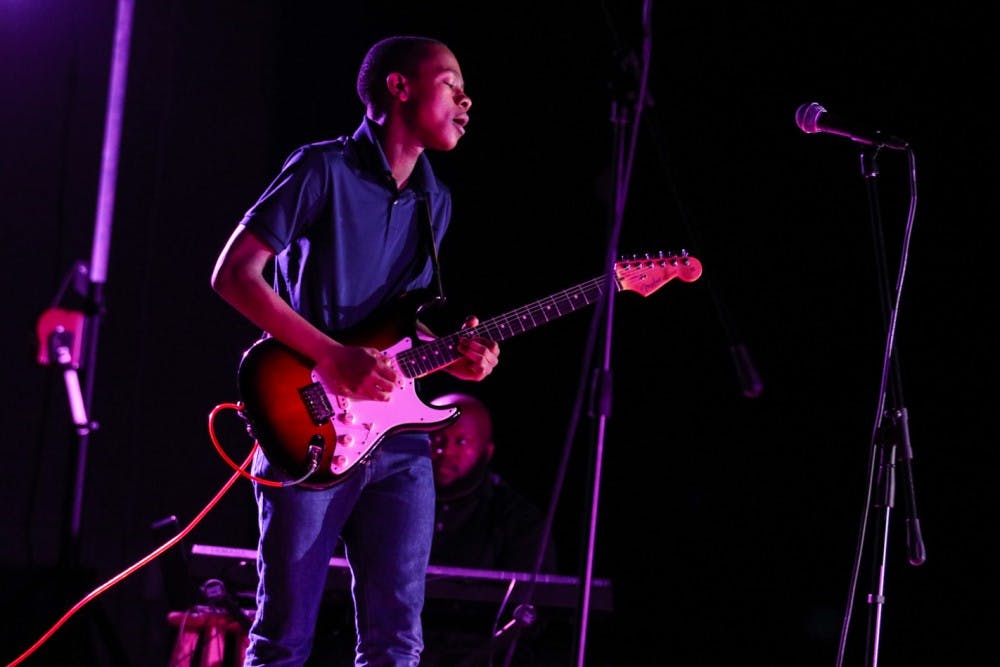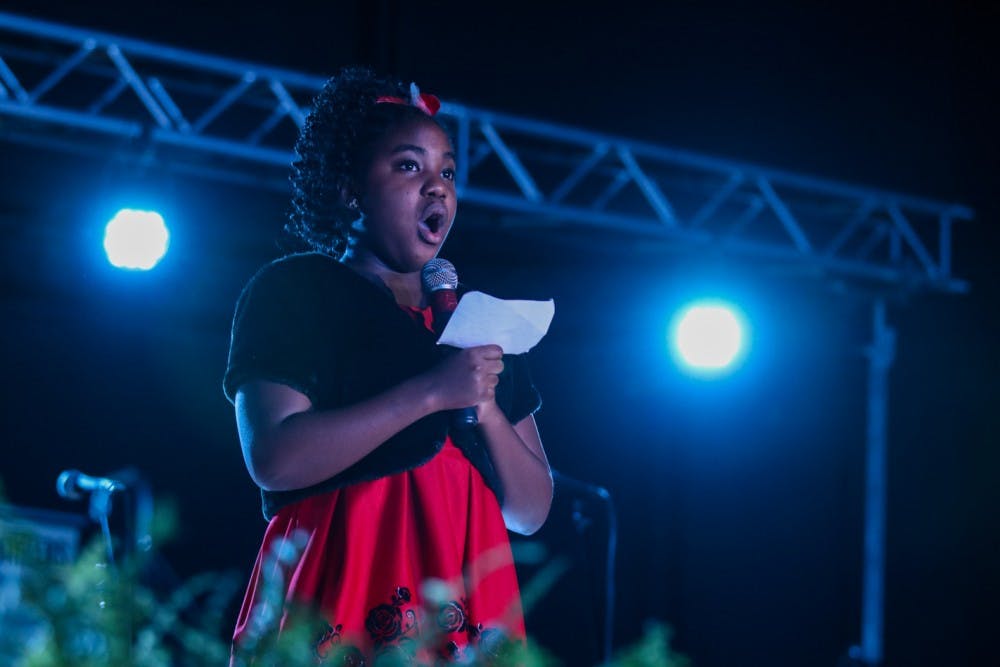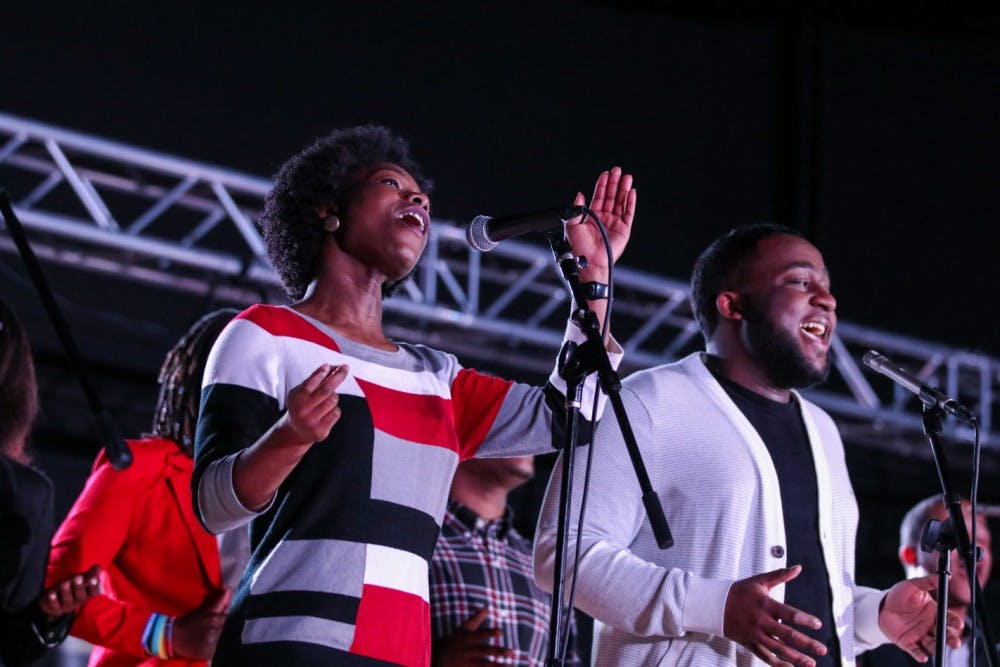USC President Harris Pastides opened the university's annual Freedom Rings celebration by asking the audience to come together through diversity and to think as one family.
Music was vital to King's role in the civil rights movement as a minister, Pastides said. This is how the Freedom Rings event came about in the university's celebration of MLK.

Freedom Rings was put on by USC and the Auntie Karen Foundation in the Booker T. Washington Auditorium and extends back 36 years.
The event's goal was to spread King's message through arts such as music, spoken word and poetry. Some of the acts, such as the gospel group John Lakin & Band of Worshippers, brought the audience to their feet as they sang and clapped.
Millie Houston, a chef at USC, said she couldn't pick a favorite act, but specifically liked the grand finale put together by John Lakin & Band of Worshippers.
“It was all giving praise and glory to God and each of it in its own different way,” Houston said.
Brooke Wilson, a second-year exercise science student, said she preferred the spoken word poetry performed by The Watering Hole because of a piece of poetry that discussed how important soul food is to the black community and how it's more than just food. Other attendees enjoyed the wide range of arts displayed.

“It’s not like there’s one defined way of doing it, I like that not only did they have music, they also had artists come and actually paint or sculpt whatever they did in order to celebrate in their own artistic way," said Jonathon Johnson, project coordinator for the Columbia 63 Our Story Matters initiative.
The Columbia 63 Our Story Matters initiative teaches the untold stories and history of the civil rights movement in South Carolina. One of these untold stories involves Sarah Mae Flemming who, at 20, sat in the white section of bus and was verbally and physically abused by the driver and forced to exit. Flemming was able to sue and win her case, outlawing segregated city buses in South Carolina.
Embedded in the artistic expression was King's civil rights movement, and Johnson hopes that it resonated with the audience.
"There was a reason that Martin Luther King had to stand up to fight, there was a reason behind the protest and there was a reason behind all of these images," Johnson said.
Houston thinks the most important way to celebrate MLK's legacy is to consciously serve others, and Wilson believes USC students should always continue to fight for social justice.
“I think the biggest lesson to learn is that there is no end to the social justice work that needs to be done and we should never be happy with where we’re at," Wilson said. "We should always strive for the next win in terms of social justice and making sure that we all have the freedoms that we deserve."

